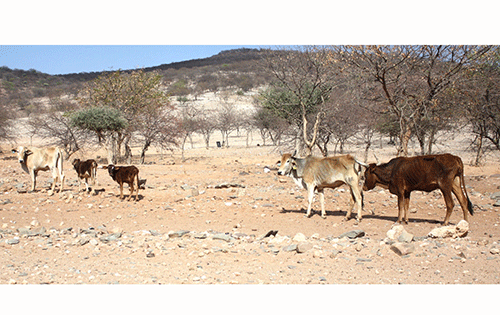The Agricultural Bank of Namibia has bemoaned the current high interest rate environment, stating that it is becoming increasingly difficult to source affordable capital to pass on to the agriculture sector at affordable rates.
In its quarterly economic outlook, the bank noted that monetary policy tightening during weak economic performance is raising fears of reduced business and consumer confidence, both globally and in Namibia. “This prompts the need for the bank to continuously engage stakeholders and shareholders for funding support and risk-sharing instruments such as guarantees,” the bank said in its quarterly outlook for the first quarter of the year.
Tight or contractionary monetary policy is a course of action undertaken by a central bank to slow down overheated economic growth, to constrict spending in an economy seen to be accelerating too quickly, or to curb inflation when it is rising too fast.
The central bank tightens policy or makes borrowing money more expensive by raising short-term interest rates through policy changes to the discount rate. Boosting interest rates increases the cost of borrowing and effectively reduces its attractiveness.
Interest rates in Namibia increased by 350bps since January 2022, the fastest increase ever recorded in the past two decades, exerting extreme pressure on household spending and increasing the cost of financing for businesses and institutions. The central bank is scheduled to announce its latest monetary policy decision today with analysts expecting an increase in the repo rate.
To add insult to injury, the rains have largely stayed away as a gloomy winter approaches.
“Unfavourable climatic conditions remain a key risk to the performance of the agriculture sector and the bank in terms of collection and loan book growth, hence there is a need for Agribank to continuously explore opportunities for innovative financing and non-financial support services to the clients,” the bank stated.
The sector is one of the most important in the domestic economy given its contribution to the gross domestic product (GDP) and direct as well as indirect dependence for individuals.
Furthermore, the bank encouraged farmers to prepare for the worst-case scenario, ramp up diversification strategies and production technologies to mitigate the impact of climate change, and unleash opportunities in the food production system.
Sector performance
The agriculture sector recorded a growth of 2.6% in 2022 compared a 1.3% in 2021. The improvement of the sector, Agribank stated, was driven by a moderate increase in the livestock farming and fishing sub-sectors that recorded growth of 1.2% and 2.3%, respectively. The crop sub-sector recorded a negligible growth rate of 4.5% in 2022 compared to 5.5% in the prior year. Furthermore, the sector is expected to remain at low levels during 2023 and 2024, mainly due to inconsistent rainfall patterns and broadly unchanged fishing quotas in 2023.
Popular Democratic Movement (PDM) leader McHenry Venaani last week in the National Assembly asked Prime Minister Saara Kuugongelwa-Amadhila on what measures government intends to implement to prepare the country for an imminent drought.
“I want to find out whether your office has put in place measures for the looming drought crisis that is about to hit the country. Every time government reacts after a lot of cattle have died, so there must be proactive action from the government,” Venaani enquired. In her response, Kuugongelwa-Amadhila said government is well prepared and has already put in place measures to assist the vulnerable before the situation reaches the crisis level. -mndjavera@nepc.com.na


